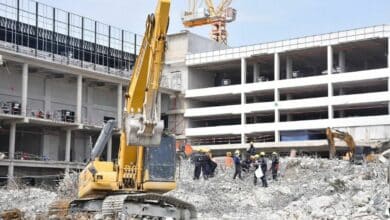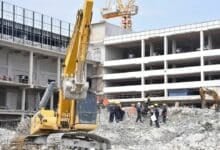Audit office blames thin elevator shafts for Bangkok collapse
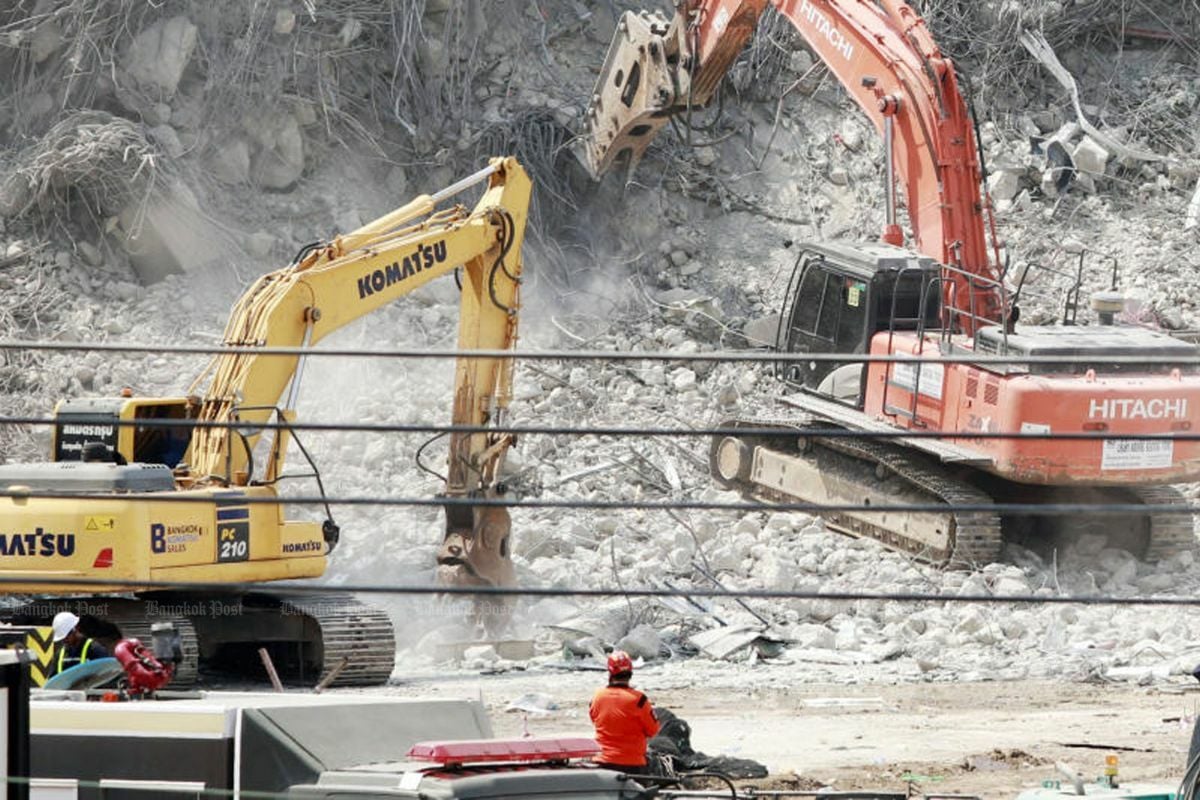
The State Audit Office (SAO) released a statement addressing the decision to reduce the wall thickness of the elevator shafts in its new 30-storey building, which allegedly contributed to its collapse during an earthquake.
The statement clarified that the adjustment in wall thickness was made to comply with appropriate building standards for interior architecture.
The construction contract was awarded to ITD-CREC, a joint venture between Italian-Thai Development Plc, listed on the Stock Exchange of Thailand (SET), and China Railway No.10 Thailand Co.
Project supervision was carried out by PKW joint venture, while Forum Architect Co and Meinhardt (Thailand) were responsible for the building’s design.
The construction contractor found that the original wall size, together with additional decorative materials, would narrow the corridor width, potentially breaching a ministerial regulation from the Interior Ministry and the Building Control Act. This led the contractor to consult with the project supervisor and designer.
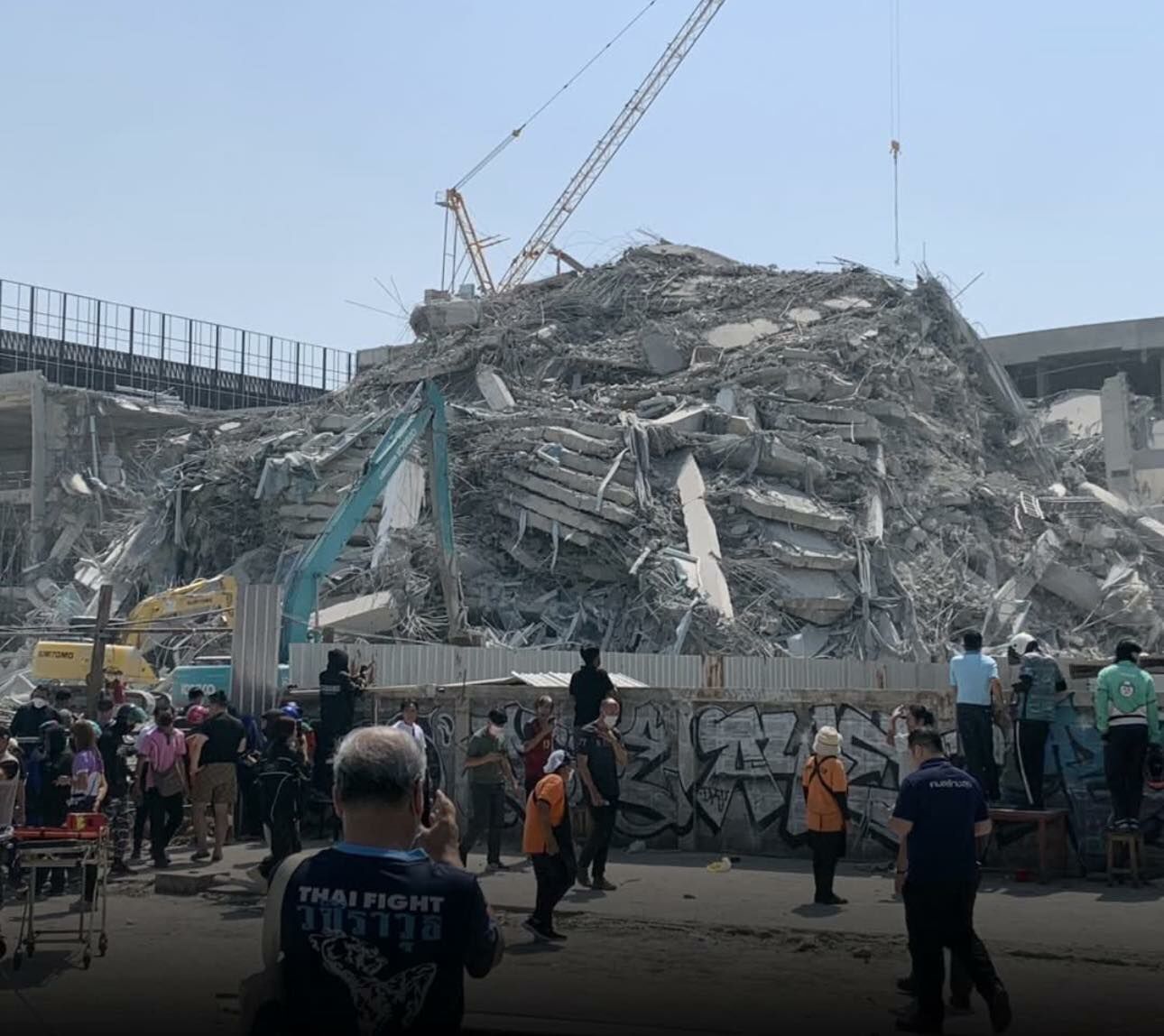
The designer advised reducing the shaft’s walls near the corridor from 30 centimetres to 25 centimetres with added steel reinforcements. This modification was verified by both the supervisor and designer, and the revised blueprint was returned to the contractor. The change was endorsed by the Auditor-General and the State Audit Commission.
Justice Minister Tawee Sodsong suggested that the decision to reduce the wall thickness may have contributed to the building’s collapse. Tawee expressed concerns about the shaft walls, noting they were significantly thinner than those in similar structures, which are typically around 60 centimetres thick, whereas the SAO building’s walls were only 25 centimetres.
The minister stated that a team of engineers would conduct an in-depth investigation to ascertain if the wall thickness played a role in the collapse. The original blueprints of the building will be scrutinised during the probe, reported Bangkok Post.
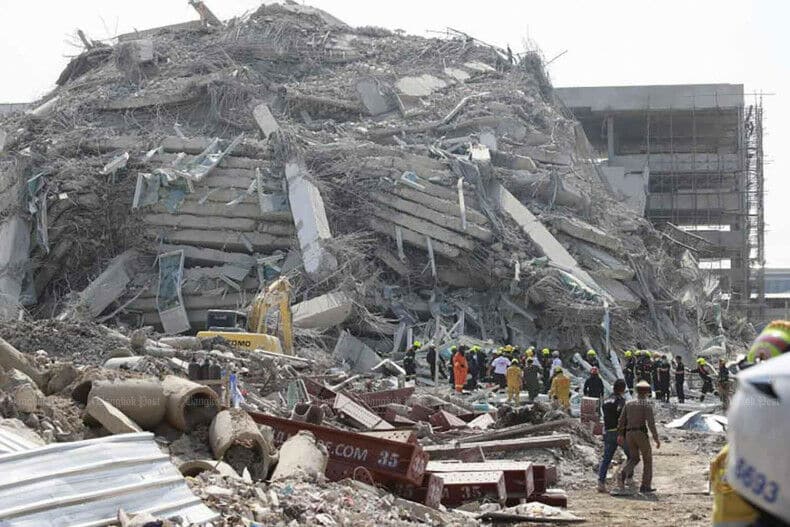
Given that China Railway No.10 (Thailand) is a subsidiary of a Chinese state-owned enterprise, Chinese authorities have been involved in addressing the incident.
Latest Thailand News
Follow The Thaiger on Google News:






























